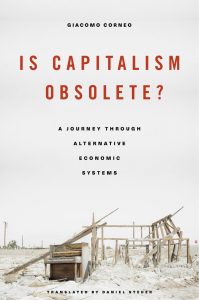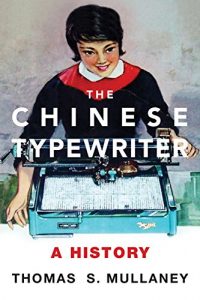I’ve already posted about the new season catalogue from Princeton University Press. Now the Harvard and MIT presses have sent their tantalising autumn/winter catalogues. Harvard is offering A Century of Wealth in America by Edward Wolff; Eli Cook on The Pricing of Progress: Economic Indicators and the Capitalization of American Life (this really looks my kind of book); and Giacomo Corneo’s Is Capitalism Obsolete? A Journey Through Alternative Economic Systems.
At MIT Press, The Chinese Typewriter by Thomas S Mullaney (“how Chinese characters triumphed over the QWERTY keyboard and laid the foundation for China’s information technology successes today”) looks tempting. I’m intrigued also by Robot-Proof: Higher Education in the Age of Artificial Intelligence by Joseph E. Aoun; and Once Upon an Algorithm: How Stories Explain Computing by Martin Erwig. (“How Hansel and Gretel, Sherlock Holmes, the movie Groundhog Day, Harry Potter, and other familiar stories illustrate the concepts of computing.”)
As it’s been one of those busy periods when I buy books because it allows me to fantasize about long, idle days sitting in the sunshine reading (hah!) (and I just spent three days at the Hay on Wye book festival), people really need to stop publishing interesting new titles for a while so I can catch up.



Chinese typewriters. I recall in the 1950’s and 1960’s when the UK typewriter industry was needing to expand at the same time as bringing in improved technology first, for example portables, and then electric they hit serious problems. First was centralised government economic and capital controls which took little account of production needs and the scope of change. Second were the problems with the unions with any kind of change. Especially, when electrics came in and the engineering and electrical unions fought it out on the shop floors of the firms. Down the drain went UK leadership or innovation and they lost out badly to US and European progress in both typewriting, computing, office machinery etc. Imperial Typewriters could have become UK’s IBM but they were on the scrap heap by the early 1970’s.
A sadly familiar story about the British economy..